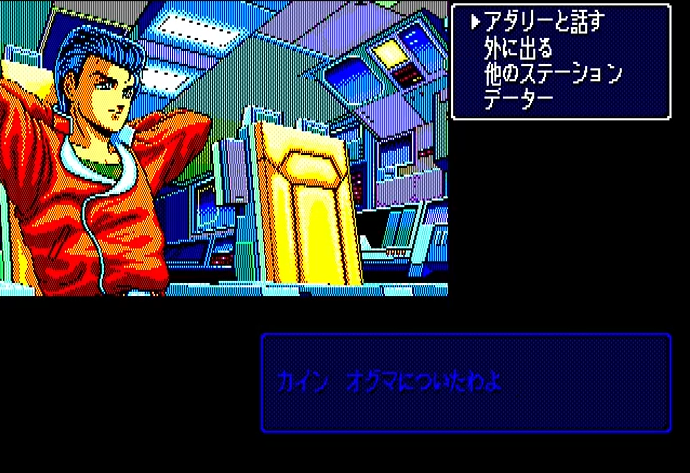Falcom is possibly the greatest Japanese game publisher that’s barely known in the US. Recently Ys sequels have changed this a bit, but their earlier titles are still a hole in the knowledge of even some Western RPG fanatics. At least, I never had much of a chance to learn about them, other than through Hardcore Gaming 101’s as-usual excellent descriptions of the Dragon Slayer series.
Xanadu is a Dragon Slayer game. It’s actually Dragon Slayer II, but it plays nothing like the original. Dragon Slayer IV: Drasle Family, is one of the very few Dragon Slayer titles to get a release over the geographic and cultural divide, as Legacy of the Wizard on NES. It doesn’t play like the other games either. It was a tradition to make every Dragon Slayer game play very unlike the others. The way I see it, the series was as much about coming up with a new system to explore and master as it was about having new scenarios and locations.
Xanadu is also a ridiculously obtuse game, which is in keeping with the original. Lots of the Dragon Slayer line expected you to do obtuse things, things not explained to you, to proceed. I’ve played through Legacy of the Wizard, and can verify that it was hard, but compared to Xanadu it seems like a model of straightforward play. In Xanadu, right near the start, there is a place where you fall down a hole, walk left five steps, then double-back right to scroll a secret shop onto the screen, the only place in the entire game where you can buy and sell magic items. Its inventory system doesn’t use words, it’s just a sequence of numbers, indicating quantities, and you’re just supposed to know the order of the items they represent.
Xanadu, like some other prominent RPGs, is secretly about resource management. Each monster you find on the world map screens (which are side-view!) can only be defeated and looted a limited number of times. If you run them out, and are left without the items needed to finish the game, you’re just stuck. You can also get stuck in some areas if you just move the wrong direction. You can save and load the game, but doing so carries costs in gold pieces! The only way to escape this temporal-economic trap is to make a backup of your game disk, and restore your copy from it. I like this idea, I’ve always found the grind-until-you-win nature of many present-day RPGs a bit unappealing. I kind of wish more games now would take inspiration from some of these early efforts, where each game could have a radically different play style, and require the player apply some real strategy to win, but maybe without being quite so user-hostile.
Youtube channel Basement Brothers made a nice retrospective of Xanadu, and managed to complete the whole game, although by following a video walkthrough. It’s an essential window into a whole universe of RPGs we were denied at the time.
Xanadu (PC-88 Paradise) Falcom’s original classic, and Japan’s must-have 8-bit action RPG of 1985 (Youtube, 39 minutes)


